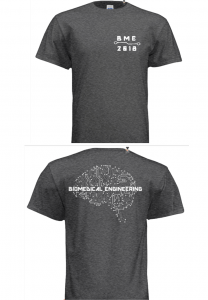This is it, my final post of the year. Exams have delayed this by at least a few weeks but, finally, we’re here at the end of our journey through biomedical engineering. I hope you’ve enjoyed it and learnt a thing or two. Let me now leave you with some final thoughts and wholesome take-home messages.
With three weeks left until specialisation applications close, I hope all you first-years reading this have decided or are close to deciding what you want your future in engineering to look like. If not, that’s fine, just don’t leave it until the night before, like you might have for some other assignments this year, this is your future we’re talking about here! Have a read of the other specialisation’s blogs on here to learn more about what they’re like and the experiences of the people who’ve been through a year of it. Take a step further by getting in touch with people you particularly fancy (hint: a quarter of the human population has Facebook or some other social media or email, so it’s not hard to find bloggers, past students, and lecturers on the Interweb).
Some of you might have seen one of your fellow students exercising their democratic rights and sharing some information about the kinds of GPAs required for each specialisation on the first year FB page, here’s that post: bit.ly/2zKaOtX. I hope this calms some nerves of those who are wondering what GPA you need for BME but if it hasn’t, see how the minimum GPA fluctuates for each specialisation. There really is no way to tell if you have a high enough GPA because “high” is a standard that is changed every year. So, don’t pick your specialisation choices based on how much of a chance you think you have of getting in them, pick them based on how much you want to do them.
Now, let’s say that you’ve already picked biomedical engineering as your top choice (and your second, third, fourth, and fifth). You want to be the next biomedical engineer that helps save lives using technology. But what does that actually mean? For a long time, I thought BME was going to lead me into building medical devices or prosthetics but it’s a lot more than that. There’s mathematical biology, biomaterials, biochemistry, computational modelling, and a whole host of “sub-specialisations” within BME itself. Even throughout my second year, I’ve felt like it’s just been a BME-oriented version of first year where you get to try all these sub-specialisations out, then in the last two years of your degree you get to have a say in what you want your degree to focus on through the electives you choose.
This year, only 35 of 1000 students in Part II could say “I study Biomedical Engineering” because BME is the smallest cohort out of all the specialisations. Despite this, we shared many classes in first semester with the folks in Engineering Science, so all our classes had no more than 100 people. It’s a sharp drop from having a room of 500 students, but the small classes mean that you get to know lots of people very quickly. This is only helped by the BME/EngSci field trip in the second week, where you not only do amazing industry site visits, but you also grow closer with your fellow BME colleagues. And of course, there’s the white-water rafting which always captures some great facials in the photo reel of students and lecturers going down a waterfall. Every year, a handful of talented artists among the cohort will create the design for that year’s specialisation t-shirt and I absolutely love this year’s on because it has my favourite organ on it!

My mind and heart were set on biomedical engineering even before I set foot on campus because it was the most intellectually fascinating subject I had ever come across. Biomedical engineering is the melding together of man and machine to not only improve the quality of life of millions of humans around the world but also to transcend our physical and biological limits with mind-bending technologies. Who doesn’t want to be a part of that?
Biomedical engineering is one of the most multi-faceted and interdisciplinary specialisations that draws upon a set of knowledge that is renewed almost every few years. The fact that what I learn now through my degree may become outdated or proven to be completely incorrect by the time I graduate is extraordinary. Biomedical engineering is a testament to a life of continuous learning for the betterment of humanity and I wouldn’t even think about choosing something else as my career.
If that and all my other blogs haven’t convinced you that BME is the best specialisation ever and that you need to select it as your first choice, then feel free to get in touch with me on any of the platforms below and I’ll happily write you a passive-aggressive essay on that very topic. And if I have influenced your specialisation choices, great! Either way, feel free to contact with me if you have any questions and it has been an absolute pleasure being the Part II blogger for BME this year. Take care and good luck out there.
– Nicholas
Email: nkon918@aucklanduni.ac.nz
Facebook: www.facebook.com/nicholas.kondal
LinkedIn: www.linkedin.com/in/nicholas-kondal
P.S: BME is a specialisation run offered by the Department of Engineering Science (DES) and 70 Symonds St is where the DES headquarters are, but the entire building is officially called Auckland Bioengineering House… what other specialisation gets an entire building named after it? 😉
